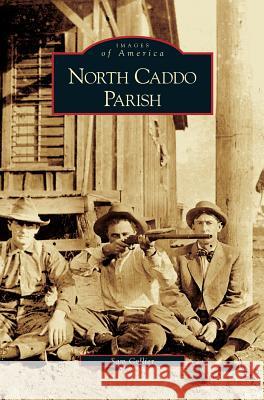North Caddo Parish » książka
North Caddo Parish
ISBN-13: 9781531633158 / Angielski / Twarda / 2007 / 130 str.
In 1835, the United States purchased close to one million acres of land from the Caddo Confederacy of Native Americans; the Louisiana portion became known as Caddo Parish. The Indian agency's protection of that land delayed the settlement of the parish
for 25 years or more after it began in other parts of Louisiana, Texas, and Arkansas. The Red River logjam that existed for a few hundred years backed up bayous, which in return created navigable streams
and lakes. The uplands contained massive stands of virgin timbers and bountiful fruit, berries, fish, and game. The first land patents were sold in 1841, and by 1850, the area was known as Caddo Prairie. For a majority of the next 100 years, steamboat traffic, homesteaders, plantations, subsistence farmers, logging operations, entrepreneurs, and a building boom brought on by the railroad and oil industries uniquely melded to define local, cultural history. Today three towns and five villages are located in north Caddo Parish, while the memories of 10 historic communities remain strong.
In 1835, the United States purchased close to one million acres of land from the Caddo Confederacy of Native Americans; the Louisiana portion became known as Caddo Parish. The Indian agencys protection of that land delayed the settlement of the parish
for 25 years or more after it began in other parts of Louisiana, Texas, and Arkansas. The Red River logjam that existed for a few hundred years backed up bayous, which in return created navigable streams
and lakes. The uplands contained massive stands of virgin timbers and bountiful fruit, berries, fish, and game. The first land patents were sold in 1841, and by 1850, the area was known as Caddo Prairie. For a majority of the next 100 years, steamboat traffic, homesteaders, plantations, subsistence farmers, logging operations, entrepreneurs, and a building boom brought on by the railroad and oil industries uniquely melded to define local, cultural history. Today three towns and five villages are located in north Caddo Parish, while the memories of 10 historic communities remain strong.











